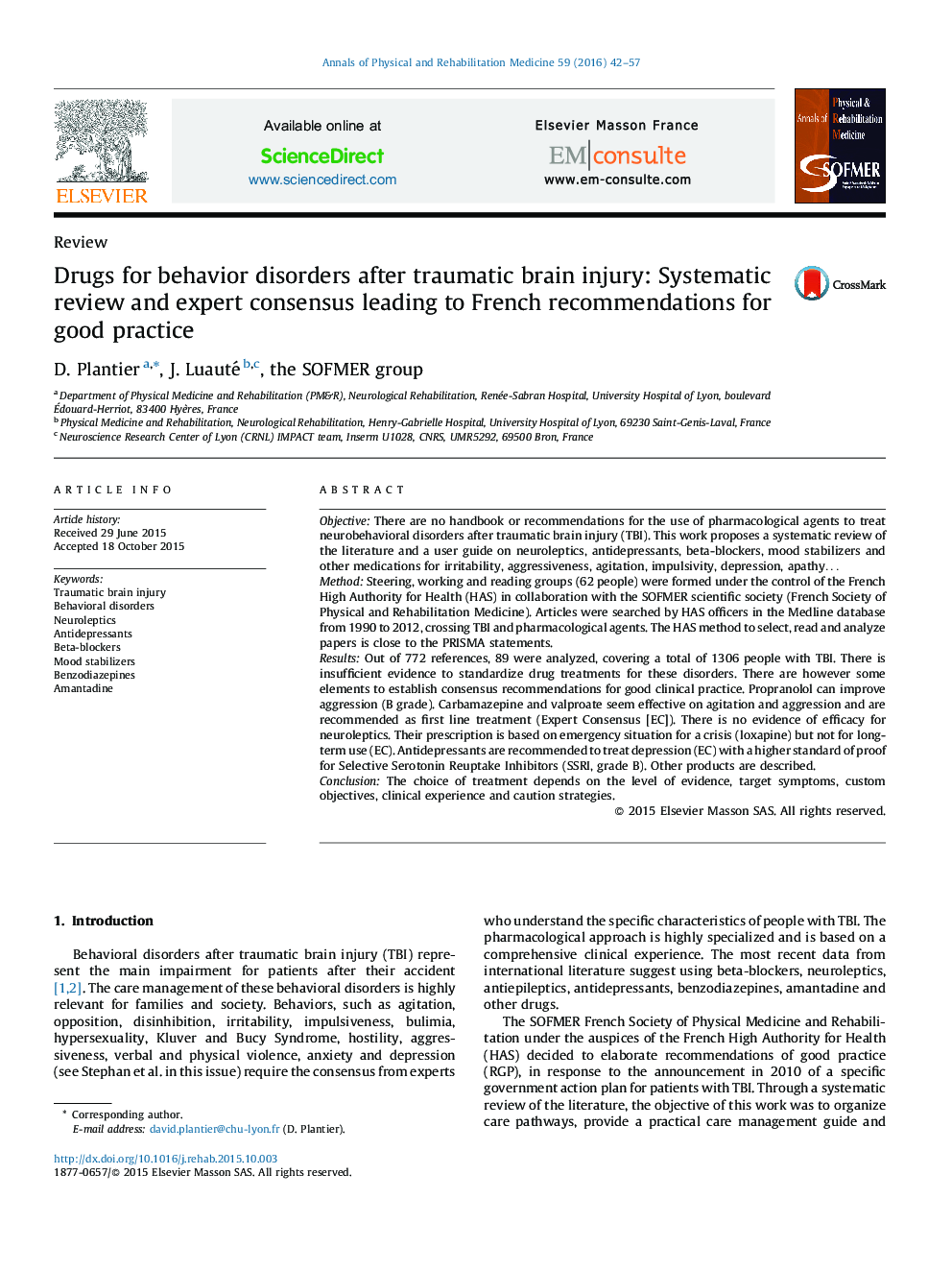| Article ID | Journal | Published Year | Pages | File Type |
|---|---|---|---|---|
| 4040482 | Annals of Physical and Rehabilitation Medicine | 2016 | 16 Pages |
ObjectiveThere are no handbook or recommendations for the use of pharmacological agents to treat neurobehavioral disorders after traumatic brain injury (TBI). This work proposes a systematic review of the literature and a user guide on neuroleptics, antidepressants, beta-blockers, mood stabilizers and other medications for irritability, aggressiveness, agitation, impulsivity, depression, apathy…MethodSteering, working and reading groups (62 people) were formed under the control of the French High Authority for Health (HAS) in collaboration with the SOFMER scientific society (French Society of Physical and Rehabilitation Medicine). Articles were searched by HAS officers in the Medline database from 1990 to 2012, crossing TBI and pharmacological agents. The HAS method to select, read and analyze papers is close to the PRISMA statements.ResultsOut of 772 references, 89 were analyzed, covering a total of 1306 people with TBI. There is insufficient evidence to standardize drug treatments for these disorders. There are however some elements to establish consensus recommendations for good clinical practice. Propranolol can improve aggression (B grade). Carbamazepine and valproate seem effective on agitation and aggression and are recommended as first line treatment (Expert Consensus [EC]). There is no evidence of efficacy for neuroleptics. Their prescription is based on emergency situation for a crisis (loxapine) but not for long-term use (EC). Antidepressants are recommended to treat depression (EC) with a higher standard of proof for Selective Serotonin Reuptake Inhibitors (SSRI, grade B). Other products are described.ConclusionThe choice of treatment depends on the level of evidence, target symptoms, custom objectives, clinical experience and caution strategies.
